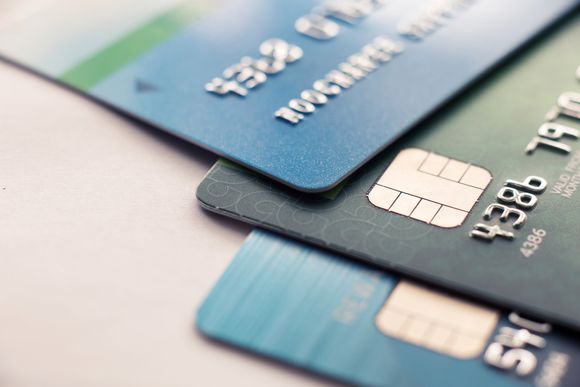How Many Credit Cards Should You Have?

Credit, a way for a customer to obtain goods prior to payment with the promise of paying later, can be traced far back in human history; even early Mesopotamia economic systems relied on it. While credit may look very different now than it did back then, the concept has mostly stayed the same.
But there is one thing ancient civilizations didn’t have: credit cards. Today, there are a variety of credit cards available—from banks, credit unions, and retail stores. This begs the question: how many credit cards should one have? To help answer this, we’ve examined why people may choose to have more than one credit card and have weighed the pros and cons of using multiple credit cards.
First, Some Credit Card 101
Put simply, credit cards provide you with a very short-term loan. When you tap $3.50 for your morning latte at a local coffee shop, for example, information will be sent to your bank. From there, the credit card company is notified to approve the purchase—then, that $3.50 is taken from your available credit until paid off at a later date.
If you have multiple credit cards, you essentially have multiple loans. But that’s not necessarily a bad thing.

Reasons for Having Multiple Credit Cards
There are a few reasons why people might choose to have more than one credit card.
Using more than one card may actually improve credit scores. Generally speaking, using only 30% of your credit card limit (or less) can help increase your credit score, while using more than that puts you at risk of lowering your credit score. If you typically spend above 30% of your limit, getting additional cards can be a good strategy to keep your utilization low.
Others might choose to have multiple credit cards for security reasons. They may, for instance, purchase items online using a credit card that has a lower limit so that less funds are at risk in case of a data breach.
Another reason to have more than one credit card? Different credit cards provide different benefits. If you travel frequently, for example, there are cards that offer free trip cancellation; others offer cash back rewards.
Pros and Cons of Having Multiple Credit Cards
When considering whether or not to have multiple cards, it’s important to weigh the pros and cons.
Pros
- Better credit scores (if using less than 30% of your credit card limit).
- Extra benefits and points, which can help cover your financial bases, fund a holiday, or be used to purchase a gift, among other things.
- Enhanced security and peace of mind, particularly if you dedicate one card (with a lower limit) to online shopping.
Cons
- More bill payments, which can be tough to manage. If you have a habit of forgetting to pay bills, or often spend beyond your means, an extra credit card may be a bad idea.
- Higher interest rates—especially compared to other types of loans. Getting out of credit card debt can be difficult, so remember to read the fine print.
- Additional administrative work. Keeping track of multiple credit cards can be complicated, requiring careful attention and planning.
How Many Credit Cards Should One Have?
Realistically, you know what’s best for you. Depending on your comfort level with keeping track of and maintaining cards, it may be advantageous to have more than one. However it can be risky if you are unable to stay organized. If you’re still unsure about whether or not to get a second credit card, consider speaking to someone at Citadel about your options.
At Citadel, we want to ensure that you’re taking steps to a secure and healthy financial future. Explore our credit card options.
